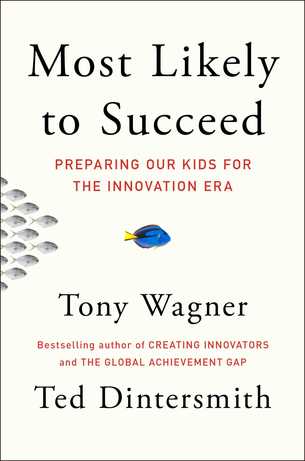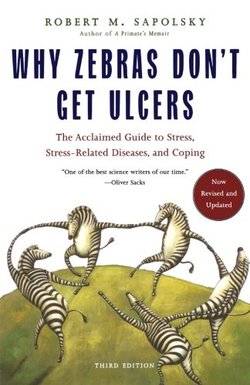|
The Economist recently published The model minority is losing patience, which shared the story of Michael Wang:
MICHAEL WANG, a young Californian, came second in his class of 1,002 students; his ACT score was 36, the maximum possible; he sang at Barack Obama’s inauguration; he got third place in a national piano contest; he was in the top 150 of a national maths competition; he was in several national debating-competition finals. But when it came to his university application he faced a serious disappointment for the first time in his glittering career. He was rejected by six of the seven Ivy League colleges to which he applied.
I run Paved With Verbs, a college counseling and life coaching business out of Palo Alto, and have worked with amazingly smart, qualified students all over the Bay. And let me tell you something about Michael Wang:
Nothing -- nothing! -- about this resume is going to make him stand out during college admissions.
To craft a great application, you need to give admissions officers something to remember you by -- through your essays, your recommendations, or something else. They're not going to remember your name. You've got to give them something else.
That rollerblades kid. That Tampax girl. The cheerleader who loves robotics.
You've got to give them something -- something uniquely you. What are they going to say about Michael Wang?
That piano player? That math guy? That kid with great ACT scores? The way admissions works at Stanford, each application is guaranteed to be read at least once. After the first reading, admissions officers pick their favorite candidates and "pitch" them to the rest of the team. After some discussion, a decision is made. You've got to give them something to remember you by. You will never stand out by doing the same thing as everyone else.
You know what else you've got to do? Demonstrate purpose. Show that you've done what you've done for a reason. Show that you aren't a passive recipient of your education. (For more, check out APs Make You Look Complacent, Not Curious.)
Because -- I'll let you in on a little secret -- elite universities aren't elite because of book learning. You could do book learning at any state school, community college or library or laptop in the world. So what makes elite schools so amazing?
1) Intellectual diversity. 2) Money. 3) Amazing faculty. Let's start with intellectual diversity. My grandpa went to college at a time when you could major in "Engineering." Not electrical, civil, mechanical, chemical or biomechanical engineering. Just engineering. But the world has changed. To quote Dr. Tony Wagner, Expert in Residence at the Harvard Innovation Lab and author of Most Likely To Succeed: Preparing Our Kids for the Innovation Era, "Innovation no longer happens within a discipline. It happens at the boundary of many."
That is exactly why admissions officers don't want to fill their entire freshman class with 4.0 GPA, 36 ACT, Math Club, piano-playing freshman. Today, "diversity" means so much more than skin color. Colleges want admit intellectually diverse students so that, together, they can create and innovate.
Next, there's money. Money means small classes. It means building close relationship with faculty. It means superior residential programming. It means undergraduate research opportunities, overseas seminars, study abroad programs, fellowships and grants. It means student groups. It means weekend workshops, guest lectures and crazy cool collaborations. It means more opportunities than even the most engaged student will know what to do with. It also means research funding, and the ability to attract amazing faculty. At Stanford, I had the chance to study with three of the top ten most-cited living psychologists in the world. As an undergrad. Before I knew who Carol Dweck was, I'd taken classes and attended talks by her. And that is pretty wild. Want to hear another wild story about my college experience? My junior year at Stanford, I applied for a $9,000 research grant to study play behavior in congener bird species across South and Central America. I was a psychologist. I had little background in biology. But you know who helped me come up with a great methodology for my proposal? Robert Sapolsky, author of the bestselling book, Why Zebras Don't Get Ulcers, as well as many others, like The Trouble With Testosterone: And Other Essays On The Biology Of The Human Predicament and A Primate's Memoir: A Neuroscientist's Unconventional Life Among the Baboons.
And you know who agreed to be my advisor?
Dr. Terry Root, Lead Author for the Third (2001) and Fourth (2007) Assessment Reports of the Intergovernmental Panel for Climate Change and a Review Editor for the Fifth (2014) Assessment Report. In 2007 the IPCC was co-awarded the Nobel Peace Prize with Vice President Al Gore - meaning she'd basically won a Nobel Prize. That's the amazing thing about elite schools. That's why schools ask for recommendations. They want to see that you're going to take advantage of your access to their money and professors. Because -- again -- if you're not going to do that, you may as well just go to the library.
This is why colleges ask for recommendations. They already know your grades and test scores. Now,they want to see how well you've gotten to know your teachers. Because if you didn't engage with your teachers in high school, why should they assume you're going to take advantage of the world-class faculty available to you in college?
A lot of high-achievers -- a lot of students exactly like Michael Wang -- are overloaded and so focused on the A... that they never get to know their teachers. They never ask meaningful or interesting questions. They just want to know how to solve the homework problem so they can get the A. They just want to talk about getting extra credit. So what's that teacher going to say about you in your recommendation? "So-and-so had great attendance and got an A in my class?" In my professional opinion, the so-called "less qualified" applicants who got into schools Mr. Wang didn't... were probably a lot more qualified than Wang realized. And they probably had much better recommendations. *** More than anything else, admissions officers understand one thing:
You will get out of your education what you put in.
With the right motivation, attitude and work ethic, you can get as much out of Occidental or UC Riverside or Santa Clara University as you would out of Stanford or Harvard. Inversely, with the wrong motivation, attitude and work ethic, you can get as much out of Stanford or Harvard as you'd get out of San Jose State or Foothill Community College. So what's the takeaway here? As I wrote on my Thoughts page, Once upon a time, it was possible to stand out with grades and test scores alone. But now, your child is competing with students from all over the world who are trying to get into the same dream school by doing taking the same classes and getting the same GPA. At this point, APs are predictable. And they do little to tell an admissions officer anything about what makes your child special. In the words of one Stanford admissions officer I know, "No admissions officer ever got up out of her seat, knocked on a colleague's door, and said, 'Hey - did you read about the kid who took 11 APs? Read More >'"
The advantage of going to a great high school, like Palo Alto High School or Sacred Heart, isn't that you can take the same AP courses as students at high schools all over the country. It's that your school and community are full of opportunities, and opportunities to create opportunities. And elite schools want students who will take advantage of that. After all -- that's the advantage of an elite school. Not their opportunities for book learning.
That's why, no matter where you go to high school, it's important to develop unique interests and niche expertise. It's important to learn how to do things computers can't do better than people. It's important to demonstrate grit and resilience. And it's important to be "world class" at something -- even if that "thing" is baseball analytics, vintage fashion or ear training. Or something you completely invented yourself. After all, Achievement isn't normal. It's log-normal. And there's no way you're going to stand out if you fall into the 4.0 state of mind. To learn more, check out: Creating Innovators: The Making of Young People Who Will Change The World by Dr. Tony Wagner The Blessing of a B Minus: Using Jewish Teachings to Raise Resilient Teenagers by Wendy Mogel Ph.D. How to Raise an Adult: Break Free of the Overparenting Trap and Prepare Your Kid for Success by Julie Lythcott-Haims The Rise of the Creative Class--Revisited: Revised and Expanded by Richard Florida
2 Comments
1/6/2016 11:15:15 pm
To craft a great application, you need to give admissions officers something to remember you by -- through your essays, your recommendations, or something else. They're not going to remember your name. You've got to give them something else.
Reply
3/1/2017 04:06:00 am
This blog website is pretty cool! How was it made !
Reply
Leave a Reply. |
About the Author

Eva is a content specialist with a passion for play, travel... and a little bit of girl power. Read more >
Want to support The Happy Talent? CLICK HERE!
Or Find me on Patreon!
What's Popular on The Happy Talent:
Trending in Dating and Relationships:
What's Popular in Science: Playfulness and Leisure Skills:
Popular in Psychology and Social Skills:
Categories
All
|




























 RSS Feed
RSS Feed